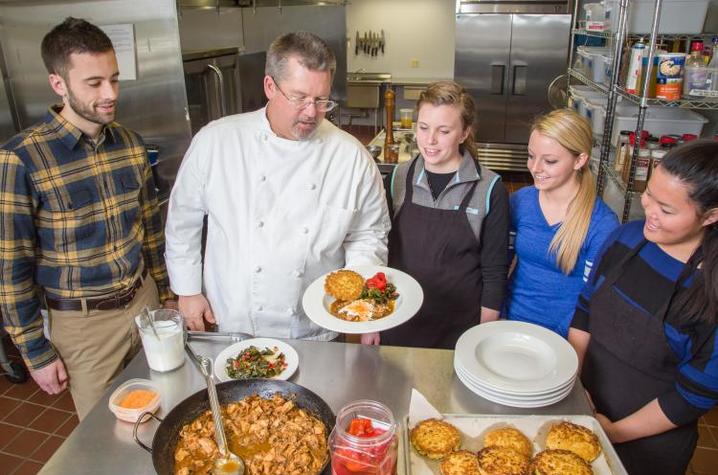UK Helps Kentucky Bakeries Develop Nationally-recognized Products

LEXINGTON, Ky. (Feb. 15, 2022) — In 2014, the University of Kentucky College of Agriculture, Food and Environment started a collaboration with Bluegrass Bakery to source locally grown wheat and mill it into flour for their products. Recently, that bakery was named one of the best in the state by “Food and Wine Magazine.”
The business is just one of the bakeries with which the university partners to provide milling services and flour.
"Bluegrass Bakery wanted high quality flour using local wheat,” said Bob Perry, chef in the UK Department of Dietetics and Human Nutrition. “We thought this was a fantastic opportunity and a venture which was possible due to multiple departments, like Plant and Soil Sciences and Horticulture, in the college.”
The partnership is also a hands-on teaching opportunity Perry was excited to pursue. The chef used funds from the Kentucky Agricultural Experiment Station to purchase a flour mill he could use as a teaching tool at the Lemon Tree, the college’s student-run restaurant. Perry instructed students how to mill the grain and prepare its subsequent products in the Lemon Tree class that he co-teaches with UK lecturer Aaron Schwartz. The chef used the resulting research to include the flour in each of the breads served at the Lemon Tree and show the students that whole grains can be flavorful.
“Using our facilities, we are able to do a lot of research to find a wheat variety that works for the farmer, the baker and the customer,” Perry said. “I also think that supporting local food systems is important, which is why we only use Kentucky farms to procure our wheat.”
“We were very pleasantly shocked when we heard the news,” said Jim Betts, owner of Bluegrass Bakery. “There is a sense of pride in being able to use locally sourced materials. This is something that we were really excited to start doing with UK a few years ago.”
Going into its eighth year, the program continues to expand as researchers in the college screen varieties for aroma and taste with the hopes of Kentucky producers growing other nontraditional varieties in the state to meet the needs of the growing local food industry. It has also expanded to include Blue Dog Bakery and Cafe in Louisville and Sixteen Bricks in Cincinnati. Both businesses have received high marks from the public.
“Doing this has been a blast,” Perry said. “The university and the people at Bluegrass Bakery were just experimenting at first. Now, as the research into a great wheat variety has developed, we have been able to expand it to include students, additional bakeries and local wheat producers. It’s been a really good experience.”
As the state’s flagship, land-grant institution, the University of Kentucky exists to advance the Commonwealth. We do that by preparing the next generation of leaders — placing students at the heart of everything we do — and transforming the lives of Kentuckians through education, research and creative work, service and health care. We pride ourselves on being a catalyst for breakthroughs and a force for healing, a place where ingenuity unfolds. It's all made possible by our people — visionaries, disruptors and pioneers — who make up 200 academic programs, a $476.5 million research and development enterprise and a world-class medical center, all on one campus.




